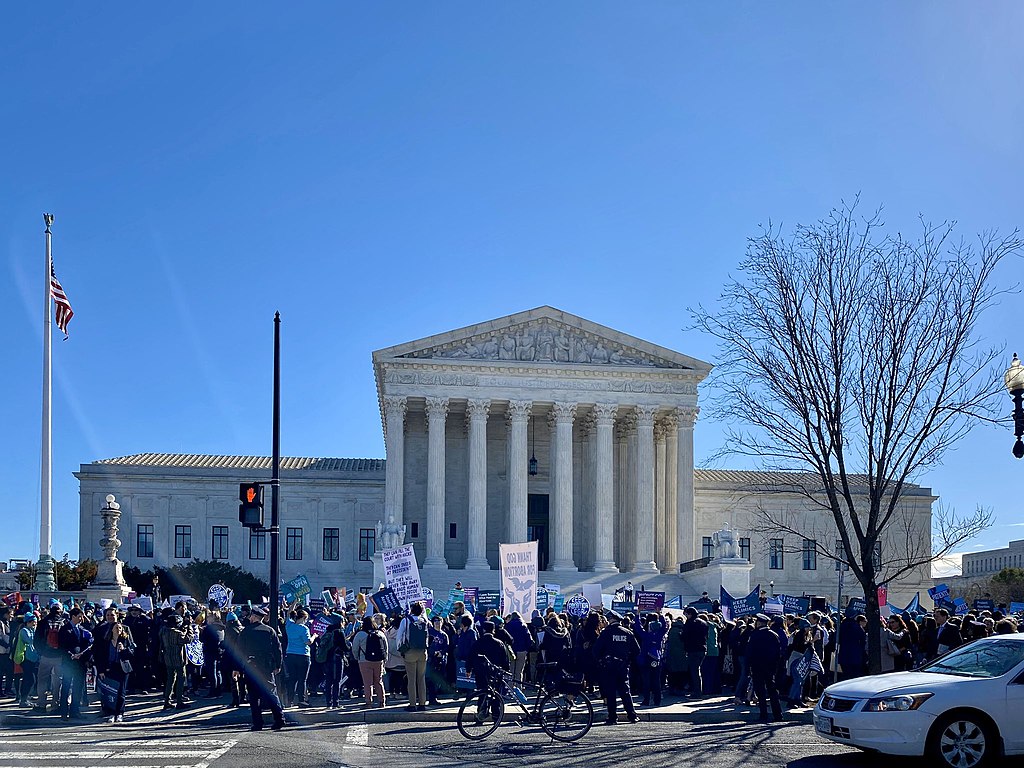The Supreme Court on Thursday refused to reinstate the Biden administration’s policy limiting immigration arrests, after a Texas district judge said the guidance to deportation officers violated federal laws. It was decided that “the case will be set for argument in the first week of the
December 2022 argument session” and so the administration will not be able to implement strategies for the rest of the year.
“The vote was 5 to 4. Justices Sonia Sotomayor, Elena Kagan, Amy Coney Barrett, and Ketanji Brown Jackson indicated they would have granted the administration’s request to put the lower court ruling on hold and allow the administration to go forward with its policy while deciding the merits of the case. It was Jackson’s first recorded vote since she joined the court June 30. Chief Justice John G. Roberts Jr. and Justices Clarence Thomas, Samuel A. Alito Jr., Neil M. Gorsuch and Brett M. Kavanaugh turned down the administration’s request, so it was the first time a 5-to-4 vote on the court also indicated a gender split”, according to the
Texas Tribune.
The Biden administration had protested that it was unfair to allow a single district judge disrupt the executive branch’s immigration priorities on a nationwide basis.
In September, the Department of Homeland Security (DHS) instructed U.S. Immigration and Customs Enforcement officials to prioritize the detention of newcomers and immigrants who pose a threat to national security and public safety, and who should not attempt to detain or deport the elderly, rural workers “and others who were vulnerable to deportation under the Trump administration, which allowed agents to arrest anyone in the United States illegally”, according to
The Post.
In that context, new guidelines issued by Homeland Security Secretary Alejandro Mayorkas said the fact that someone is an undocumented immigrant “should not alone be the basis” for arrest or removal.
However, Republican attorneys general across the country have filed lawsuits, and those in Texas and Louisiana have been successful.
Nonetheless, Republican attorneys general across the country filed suits, and those in Texas and Louisiana were successful.
“Judge Drew Tipton in Texas agreed with the argument that the policy burdened them with the costs of immigrants’ education, health care and other services, and ignored federal laws that require ICE to detain and deport immigrants who commit serious crimes or have been given a recent deportation order. […] The Texas case is among a series of lawsuits that have sought to take down Biden’s immigration policies, which he characterized as a more humane approach to enforcement”, as published the Texas Tribune.
The US 6th Circuit Court of Appeals ruled for the Biden administration when it considered a nearly identical case brought by Arizona, Montana and Ohio, while the 5th Circuit said it was “inclined to agree” with Tipton and rejected the Biden administration's request with the elimination of ICE enforcement priorities.
Mayorkas said the new policy guidelines instructed agents to set priorities, just as he did as a US attorney in Los Angeles years ago. He also said that the most effective use of the agencies’ resources, which are limited, can ensure greater security for communities and borders.
“ICE deportations and arrests dropped to their lowest levels in the agency’s history last fiscal year. Officers working in the interior of the United States carried out about 74,000 administrative arrests, a drop from 104,000 the year before and an average of 148,000 annually from 2017 through 2019”, according to The Texas Tribune.
“In a statement Friday, the Department of Homeland Security said that while it awaits a final ruling by the Supreme Court, Immigration and Customs Enforcement officers ‘will make enforcement decisions on a case-by-case basis in a professional and responsible manner, informed by their experience as law enforcement officials and in a way that best protects against the greatest threats to the homeland’”, according to
Associated Press.
 commons.wikimedia.org
commons.wikimedia.org











